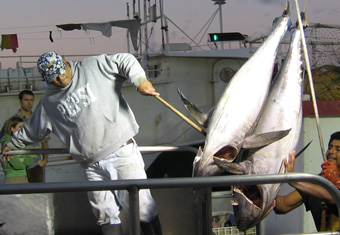

Abstract
Fish are a critical natural resource, yet global fishery landings have peaked while human populations and demand for seafood have continued to rise. We are fishing harder and catching less. This increasing pressure on a limited resource has coincided with the widely reported collapse of fisheries around the world. Such collapses have occurred in fisheries that were once among the most productive in the world, including northwest Atlantic cod and Peruvian anchoveta. Some stocks, such as anchoveta, have recovered, while others, including cod, remain severely depressed. Our knowledge of the factors that lead to collapse and failed recovery of fisheries is limited and largely based on anecdotal case studies. There is an urgent need for approaches that can forecast risk of collapse or prolonged recovery using easily measured characteristics.
My Smith Fellowship research will address this need through a global meta-analysis of fisheries stock abundance time series. In collaboration with scientists from the University of Washington, Environmental Defense, and the National Marine Fisheries Service (NMFS), I will synthesize data on stock abundance from NMFS, foreign governments, and international fisheries management organizations. These data on stock status will be combined in a statistical model with information about the biology of fished species, the economics of their fisheries, and current management strategies.
Medical research has identified risk factors associated with many diseases. Knowledge of these risk factors allows individuals to be proactive in preventing disease. Similarly, my research will identify biological, economic, and management risk factors that are most frequently associated with fisheries collapse and failed recovery. Management resources can then be targeted towards protecting fisheries that are most at risk.
